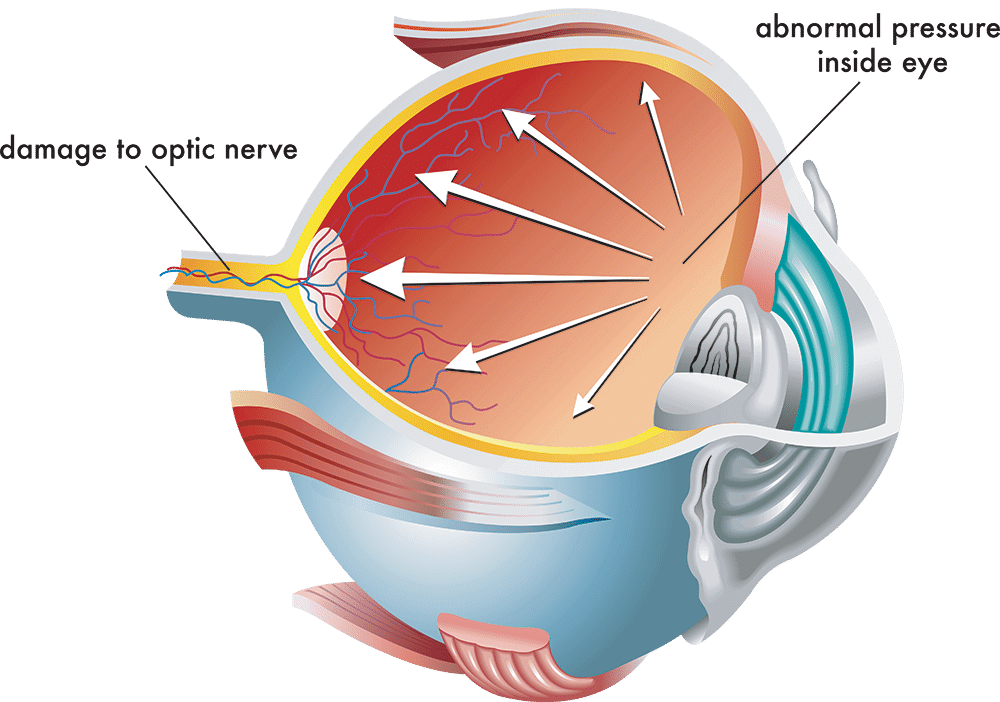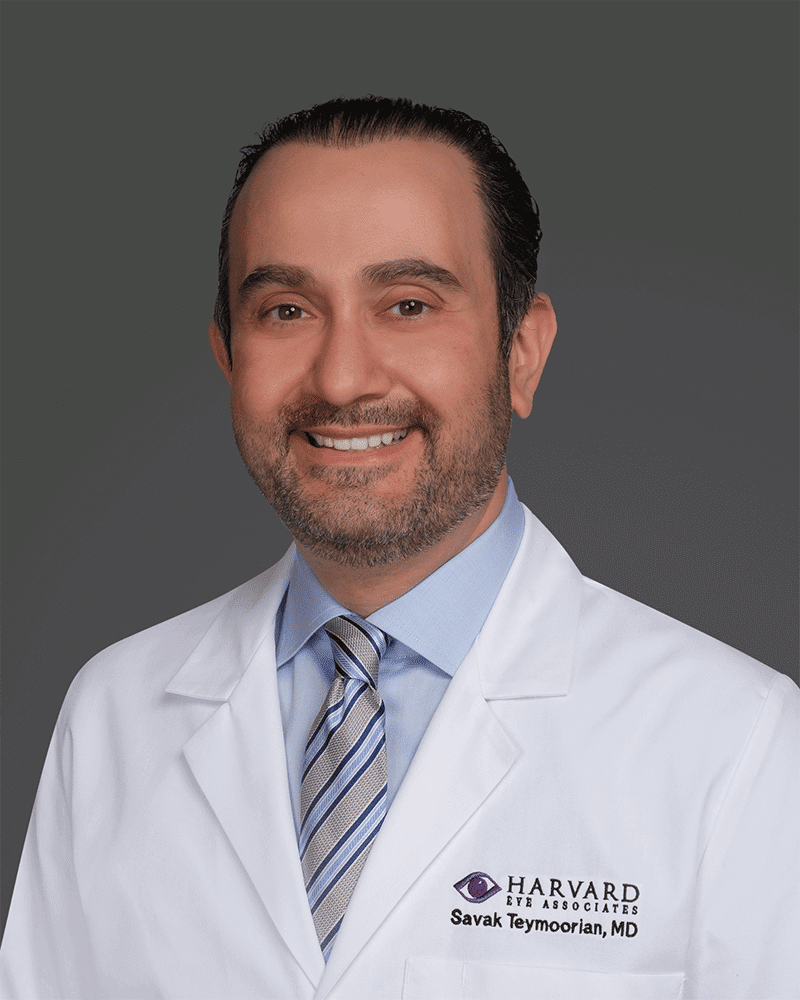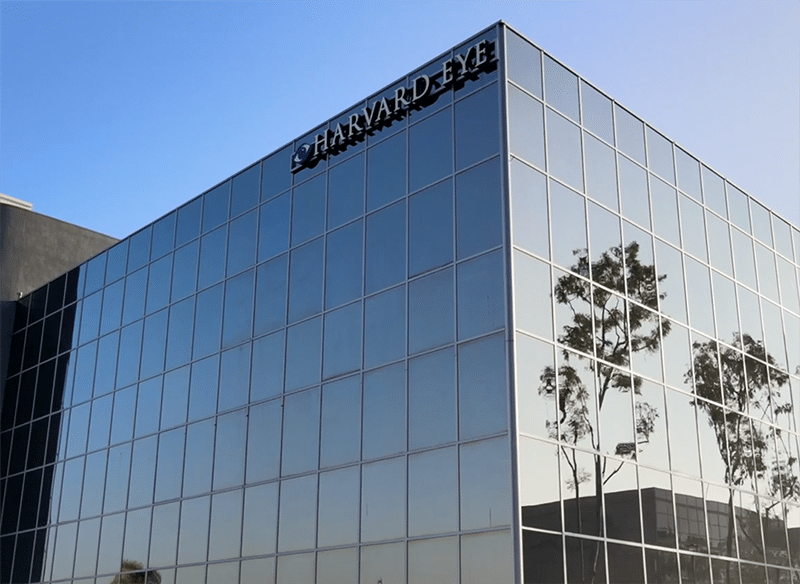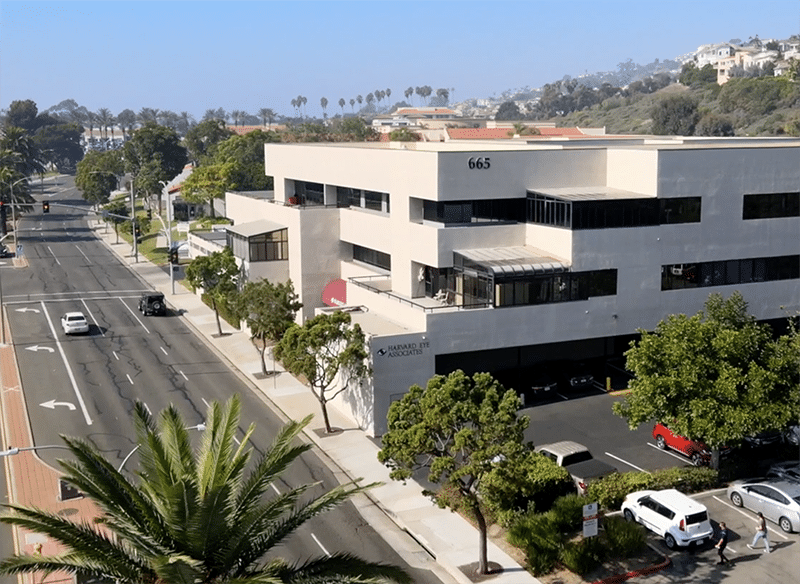Glaucoma
Glaucoma in Orange County, CA
Glaucoma is one of the leading causes of blindness worldwide. Often developing without warning signs, this serious eye condition can gradually steal your vision before you even realize there’s a problem.
At Harvard Eye Associates, our glaucoma specialists are dedicated to early detection, accurate diagnosis, and advanced treatment options to help preserve your sight. From routine screenings to interventional procedures, we’re committed to protecting your vision at every stage of this condition.
Schedule your vision exam today to be proactive with your eye health – even if you are not experiencing any vision problems. In Laguna Hills, San Clemente and Orange, our doctors can diagnose glaucoma and provide treatment recommendations.
What is Glaucoma?
Glaucoma is a group of eye diseases that cause damage to the optic nerve. The optic nerve is the “electric cable” that sends visual signals between the eye and the brain to form images so we can see.
High eye pressure can damage the sensitive nerve fibers that make up the optic nerve, and higher eye pressure can lead to more damage. Sometimes, relatively “normal” eye pressure can still cause optic nerve damage.
Normally, fluid (called the aqueous humor) in the eye flows freely through the anterior chamber and exits through the drainage system. If that system is blocked or isn’t functioning well, the eye pressure builds up, which in turn damages the optic nerve.
There are different types of glaucoma. Generally speaking, the most common type in the U.S. is the Primary Open-Angle Glaucoma. However, some people may have Narrow-Angle Glaucoma due to a crowded drainage angle in the eyes.
In some cases, other conditions, such as eye injuries, inflammation, or advanced cases of diabetes can cause secondary glaucoma.


Glaucoma is one of the leading causes of irreversible blindness in people over the age of 60. Many forms of glaucoma have no symptoms or warning signs, which is why it is called the “silent thief of sight”. If left untreated, glaucoma can cause permanent peripheral (side) vision loss.
Early detection and treatment by an ophthalmologist are key to preventing vision loss from glaucoma. Since vision loss due to glaucoma cannot be recovered, it’s important to have regular eye exams that include measurements of eye pressure, visual field tests, and optic nerve scans/imaging. If you are diagnosed with the condition, you will generally need long-term treatment and monitoring.

How is Glaucoma Diagnosed?
We will first review your medical history and conduct a full dilated eye examination.
We are particularly interested in any family history of glaucoma, previous eye injuries or surgeries, any eye or head trauma, autoimmune conditions such as thyroid disease, rheumatoid arthritis, etc., especially if you have chronic eye inflammation. Other systemic issues, such as blood pressure issues (low or high), diabetes, heart conditions, a history of stroke or “mini stroke,” or sleep apnea are also important to note.
Other important testing and imaging may include:
- Tonometry: Measuring intraocular (eye) pressure
- Pachymetry: Measuring corneal thickness
- Gonioscopy: Inspecting the drainage angle with a special lens
- Visual Field Test: Checking for peripheral (side) vision loss
- Looking for signs of optic nerve damage through a dilated eye examination, scanning, and taking pictures.
Who is at Risk of Developing Glaucoma?
The Orange County glaucoma specialists at Harvard Eye Associates thoroughly examine all patients for signs of glaucoma during comprehensive eye exams.
There are certain risk factors that may increase your likelihood of developing glaucoma, such as:
- Family history of glaucoma in 1st degree relatives (10x higher risk)
- Eye pressure measurements
- Older age (>60 yrs)
- Having optic nerve or visual field findings that are on the border between glaucoma and normal
- African-American, Asian or Hispanic ethnicity
- Being very myopic (nearsighted) or hyperopic (farsighted)
- Having a thin cornea
- Having had an eye injury or certain types of eye surgery
- Having certain medical conditions, such as diabetes, heart disease, high blood pressure, or autoimmune conditions, which can lead to chronic eye inflammation
- Taking topical corticosteroid medications

Raising Awareness: The American Glaucoma Society’s Family Matters Program
How is Glaucoma Treated?
At Harvard Eye Associates, our glaucoma specialists offer a comprehensive range of treatment options tailored to each patient’s specific needs and stage of disease:
Micro-Incisional Glaucoma Surgery (MIGS)
Micro-incisional glaucoma surgery (MIGS) is a group of newer, minimally invasive surgeries that help lower eye pressure with fewer risks and a faster recovery compared to traditional glaucoma surgery. These techniques can often be performed during cataract surgery, addressing both conditions simultaneously. Some MIGS procedures can also be performed independent of cataract surgery.
Interventional Glaucoma
Interventional glaucoma represents a specialized approach to treating glaucoma that goes beyond traditional eye drops and basic laser treatments. It focuses on proactive surgical interventions designed to more effectively control eye pressure when topical treatments aren’t sufficient.
Proven Interventional Glaucoma Treatments:
The goal of interventional glaucoma is to preserve vision through more proactive, yet effective, and long-lasting treatment solutions tailored to each patient’s specific needs and circumstances.

Medicated Eye Drops
Medicated eye drops need to be taken daily and routinely in order to work properly. These medications lower eye pressure, either by decreasing the amount of aqueous fluid produced within the eye or by improving the flow through the drainage angle.
There are different types of glaucoma drops your doctor may prescribe and frequency of the medication can vary depending on the stage of the disease.
Never change or stop taking your medications without consulting your ophthalmologist. If you are about to run out of your medication, ask your ophthalmologist if you should have your prescription refilled.
Traditional Glaucoma Surgery
Traditional glaucoma surgeries are reserved for more severe stages of the disease. Proven surgical techniques remain highly effective:
Learn More About Our Cutting Edge Glaucoma Treatments
Our Doctor’s Clinical Trials and Studies
Your Part in Glaucoma Treatment
Glaucoma treatment is a collaborative effort between you and your doctor. At Harvard Eye Associates, our specialists tailor each treatment plan to your lifestyle and stage of diagnosis.







